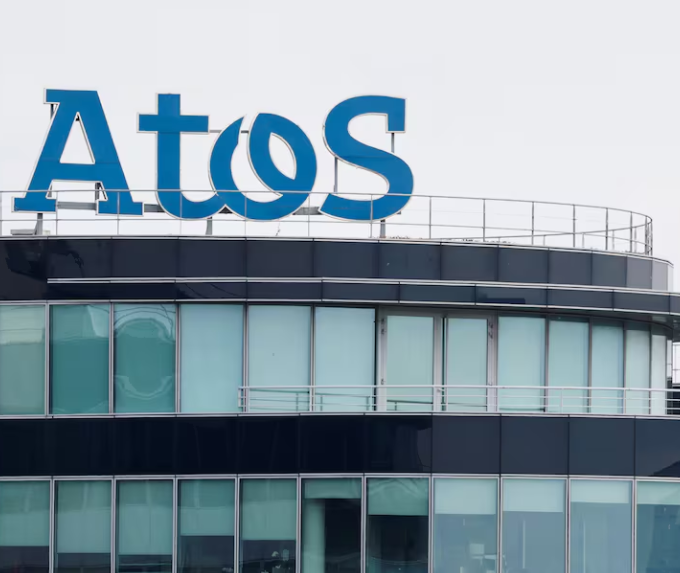- Home
- Billionaires
- Investing Newsletters
- 193CC 1000
- Article Layout 2
- Article Layout 3
- Article Layout 4
- Article Layout 5
- Article Layout 6
- Article Layout 7
- Article Layout 8
- Article Layout 9
- Article Layout 10
- Article Layout 11
- Article Layout 12
- Article Layout 13
- Article Layout 14
- Article Sidebar
- Post Format
- pages
- Archive Layouts
- Post Gallery
- Post Video Background
- Post Review
- Sponsored Post
- Leadership
- Business
- Money
- Small Business
- Innovation
- Shop
Recent Posts
ILA and USMX reach historic agreement, averting major Port Strike

The International Longshoremen’s Association (ILA) and United States Maritime Alliance (USMX) have reached a tentative agreement on a new six-year master contract, successfully averting a potential strike that would have disrupted operations at major East and Gulf Coast ports starting January 15, 2025. The breakthrough agreement, announced on January 8, comes after months of intense negotiations and follows a brief strike in October 2024.
The new agreement addresses several critical issues, most notably the contentious matter of port automation. Under the terms of the deal, both parties have established a framework that protects current ILA jobs while allowing for the implementation of new technologies that will create additional employment opportunities. The agreement aims to modernize East and Gulf Coast ports, making them safer and more efficient while maintaining strong supply chains.
This development follows a period of uncertainty that began in October 2024 when dockworkers staged a three-day strike. That dispute was temporarily resolved with an agreement for a 62% wage increase over six years, but negotiations stalled over automation concerns. The union, led by ILA President Harold Daggett, had been particularly vocal about protecting workers’ jobs from automation threats.
A crucial turning point in the negotiations occurred on December 20, 2024, when President-elect Donald Trump met with ILA President Harold Daggett in Florida. Trump’s open support for the union’s anti-automation stance and his argument that foreign-owned carriers should invest in American dockworkers rather than fully automated systems reportedly influenced the final agreement.
The tentative agreement will maintain operations under the current contract until the union can convene its full Wage Scale Committee and schedule a ratification vote, while USMX members will also need to ratify the final contract terms1. While specific details of the agreement remain confidential during the ratification process, the deal is being hailed as a “win-win agreement” that supports American consumers and businesses while maintaining the American economy’s position as a key hub in the global marketplace.
The agreement’s significance extends beyond the immediate prevention of a strike. The affected ports handle approximately three-fifths of U.S. container traffic, and a work stoppage would have had severe implications for the national economy. Industry experts had estimated that a prolonged strike could have cost the U.S. economy between $3.8 billion and $4.5 billion per day.
The resolution has been welcomed by various stakeholders across the supply chain industry. The National Retail Federation’s vice president of supply chain and customs policy, Jonathan Gold, emphasized the importance of the agreement for ensuring timely delivery of retail goods and supporting necessary port modernization efforts. Acting Secretary of Labor Julie Su praised the agreement as proof that strong unions and worker representation benefit all parties involved.
While the immediate threat of a strike has been averted, the maritime industry faces ongoing challenges. The ratification process could extend into summer 2025, and supply chains must remain flexible during this period. Additionally, the sector must navigate other challenges, including geopolitical tensions, the upcoming Chinese New Year, and the launch of new shipping alliances.
The agreement represents a significant milestone in U.S. maritime labor relations, balancing the need for technological advancement with job protection for American workers. As ports continue to modernize and adapt to changing global trade patterns, this agreement sets a precedent for how labor and management can work together to achieve mutual benefits while ensuring the continued strength and efficiency of America’s maritime infrastructure.
- automation
- cargo handling
- container shipping
- container terminals
- container traffic
- dock automation
- dock operations
- dock workers
- Donald Trump
- East Coast ports
- global trade
- Gulf Coast ports
- Harold Daggett
- International Longshoremen's Association
- labor agreement
- labor agreements
- labor disputes
- labor negotiations
- labor relations
- labor unions
- maritime alliance
- maritime commerce
- Maritime Industry
- maritime infrastructure
- maritime labor
- maritime security
- maritime technology
- maritime trade
- maritime workers
- maritime workforce
- port automation
- port development
- port efficiency
- port management
- port modernization
- port operations
- port strike
- port technology
- port workers
- shipping containers
- shipping industry
- shipping industry news
- shipping logistics
- Supply Chain
- supply chain disruption
- Supply Chain Management
- Technological Advancement
- union contracts
- union negotiations
- USMX
- worker protection
Recent Posts
Categories
- 193 Countries Consortium Partner1
- 193cc Digital Assets2
- 5G1
- Aerospace & Defense48
- AI37
- Arts3
- Banking & Insurance11
- Big Data3
- Billionaires1,467
- Boats & Planes1
- Business332
- Careers13
- Cars & Bikes79
- CEO Network1
- CFO Network17
- CHRO Network1
- CIO Network1
- Cloud10
- CMO Network18
- Commercial Real Estate7
- Consultant1
- Consumer Tech194
- CxO1
- Cybersecurity73
- Dining1
- Diversity, Equity & Inclusion4
- Education7
- Energy8
- Enterprise Tech29
- Events11
- Fintech1
- Food & Drink2
- Franchises1
- Freelance1
- Future Of Work2
- Games149
- GIG1
- Healthcare79
- Hollywood & Entertainment203
- Houses1
- India’s 1000 Richest1
- Innovation46
- Investing2
- Investing Newsletters4
- Leadership65
- Lifestyle11
- Manufacturing1
- Markets20
- Media327
- Mobile phone1
- Money13
- Personal Finance2
- Policy569
- Real Estate1
- Research6
- Retail1
- Retirement1
- Small Business1
- SportsMoney42
- Style & Beauty1
- Success Income1
- Taxes2
- Travel10
- Uncategorized14
- Vices1
- Watches & Jewelry2
- world's billionaires1,436
- Worlds Richest Self-Made Women2
Related Articles
Atos Surpasses 2024 Liquidity Targets with €2.19 Billion Year-End Position, Marking Strong Financial Recovery
French IT giant Atos SE has announced its estimated liquidity position for...
By 193cc Agency CouncilJanuary 22, 2025Innovative Gaming Meets Sustainability: Cranfield School’s “Game of Life” Wins Prestigious FT Teaching Award
In a significant recognition of innovative educational approaches, Cranfield School of Management...
By 193cc Agency CouncilJanuary 22, 2025Bitcoin Shatters Records, Surges Past $109,000 as Trump’s Inauguration Fuels Crypto Rally
In a historic moment for the cryptocurrency market, Bitcoin reached an unprecedented...
By 193cc Agency CouncilJanuary 20, 2025Billions in Child Trust Funds Remain Unclaimed as Young Adults Miss Out on Financial Windfall
A staggering £1.4 billion in Child Trust Funds (CTFs) remains unclaimed, with...
By 193cc Agency CouncilJanuary 20, 2025















Leave a comment